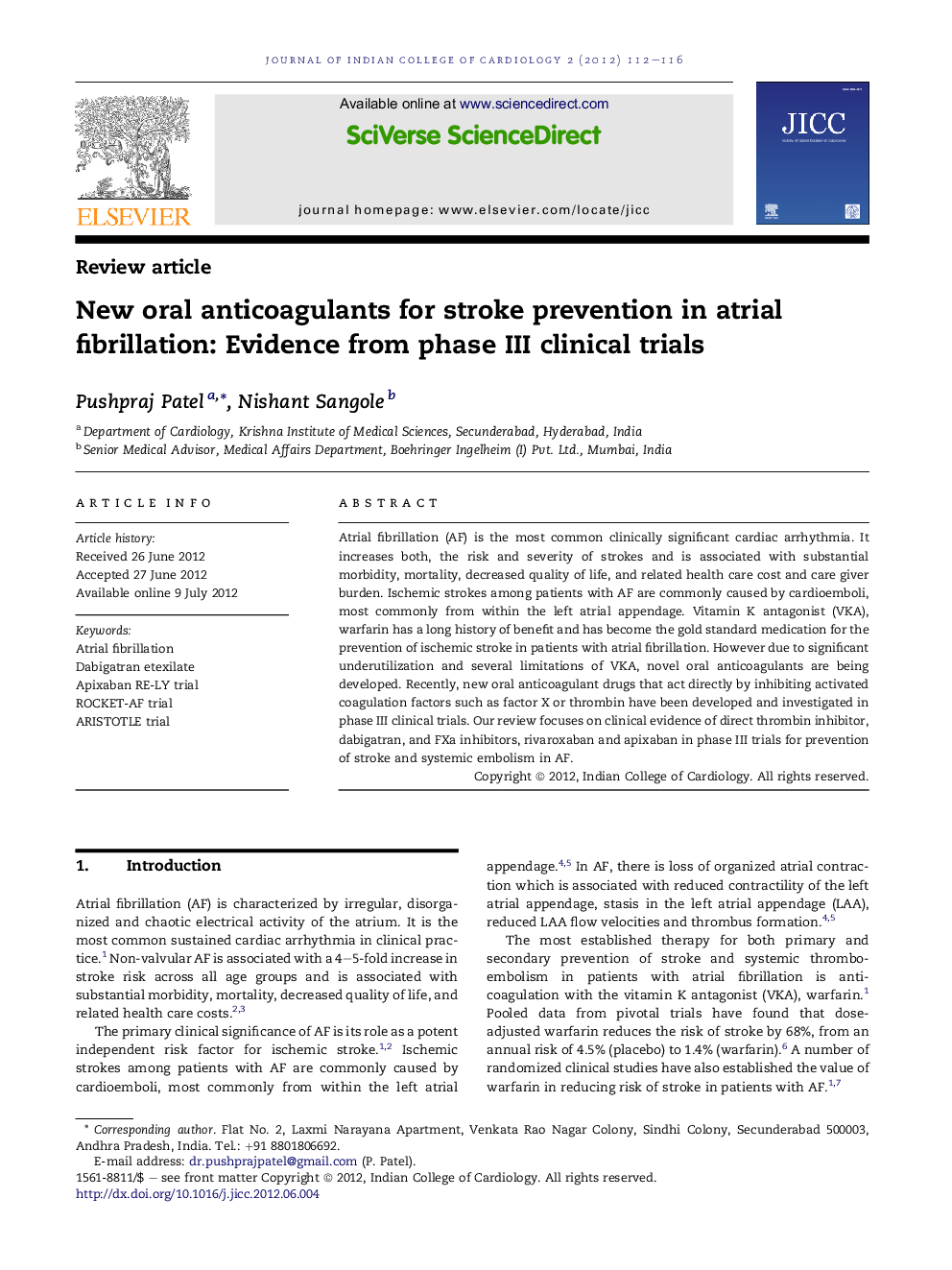| Article ID | Journal | Published Year | Pages | File Type |
|---|---|---|---|---|
| 2973976 | Journal of Indian College of Cardiology | 2012 | 5 Pages |
Atrial fibrillation (AF) is the most common clinically significant cardiac arrhythmia. It increases both, the risk and severity of strokes and is associated with substantial morbidity, mortality, decreased quality of life, and related health care cost and care giver burden. Ischemic strokes among patients with AF are commonly caused by cardioemboli, most commonly from within the left atrial appendage. Vitamin K antagonist (VKA), warfarin has a long history of benefit and has become the gold standard medication for the prevention of ischemic stroke in patients with atrial fibrillation. However due to significant underutilization and several limitations of VKA, novel oral anticoagulants are being developed. Recently, new oral anticoagulant drugs that act directly by inhibiting activated coagulation factors such as factor X or thrombin have been developed and investigated in phase III clinical trials. Our review focuses on clinical evidence of direct thrombin inhibitor, dabigatran, and FXa inhibitors, rivaroxaban and apixaban in phase III trials for prevention of stroke and systemic embolism in AF.
